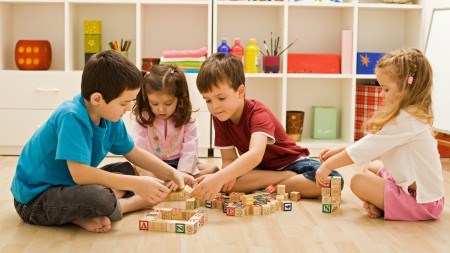It's December and school holidays are upon us, which means the kids will be at home much more. Here's how to make sure that they stay safe.
The long December school break is upon us, which means that some older children might be spending a few hours alone at home while their parents are at work. This makes teaching children about home safety an imperative over this season.
“There is only so much you can do to your property to make sure it is safe and secure. After that, you need to make your children aware of the risks and know how to deal with the situation responsibly. As a parent myself, I believe that educating children about home safety principles will ensure that they remain safe and that they then carry these lessons with them for the rest of their lives,” explains Regional Director and CEO of RE/MAX of Southern Africa, Adrian Goslett.
Below, RE/MAX of Southern Africa has researched a few safety tips that parents should teach their children:
No rough housing
While furniture such as bookcases and TV units can be secured to the wall to lower the risk of it tipping over, it is still important to teach children that climbing on furniture or engaging in any other behaviour that is not allowed can be potentially harmful to them. Children need to understand that even though you are not around to reprimand them for it, the rules are there to keep them safe from harm and should therefore not be broken.
Know their food allergies
If any children in the home are allergic to any food group, they need to understand the dangers of how it can affect them. Mark “unsafe” food with a certain sticker to alert the child to steer clear. Also, they should know to accept food only from those who are aware of their food allergies, such as a parent, teacher or nanny.
Keep medicine out of reach
Though you ought to teach your children not to touch any medication when you’re not around, it is best to store all medication in a lockable cabinet that is not within reach of the children. If there are certain medications that the child needs, it is better to leave out the prescribed amount and a note to remind the child to take it at the right time.
Locking a deadbolt and external doors
Children should know how to lock and unlock a deadbolt (or whatever other locking mechanism you have installed). It is important that they understand how the lock works so they can unlock the door in case they need to get out of the house during an emergency. They also need to know that all external-facing doors should be locked at all times to keep them safe. It is good for them to get into the habit of locking the front and back doors, even when people are home. If the doorbell rings, children should alert an adult rather than answering it themselves.
Arming and disarming the alarm
Apart from the fact that homebuyers will pay a higher premium for a property if it has a state-of-the-art alarm system, installing one will also help keep your family safe. Once installed, you will need to teach your children how to arm and disarm the security system, as well as what to do should the alarm go off when they are home.
Following the household escape plan
Though most homeowners fail to have one in place, it is important to have an escape plan for your home in case of a fire or any other emergency. To put this in place, an area of the home should be designated as the central meeting point, and each child should be walked through the safest route out of the home if an emergency should occur.
Who to contact in case of an emergency
A list of all emergency contact details should be put in an easy-to-access location such as the fridge door. At a minimum, the list ought to include the number of the local police station, fire department, paramedics, the family doctor, each parent’s contact details and a trusted friend or family member. Ideally, all children in the home, regardless of age, should know how to use a telephone and ask for help.




